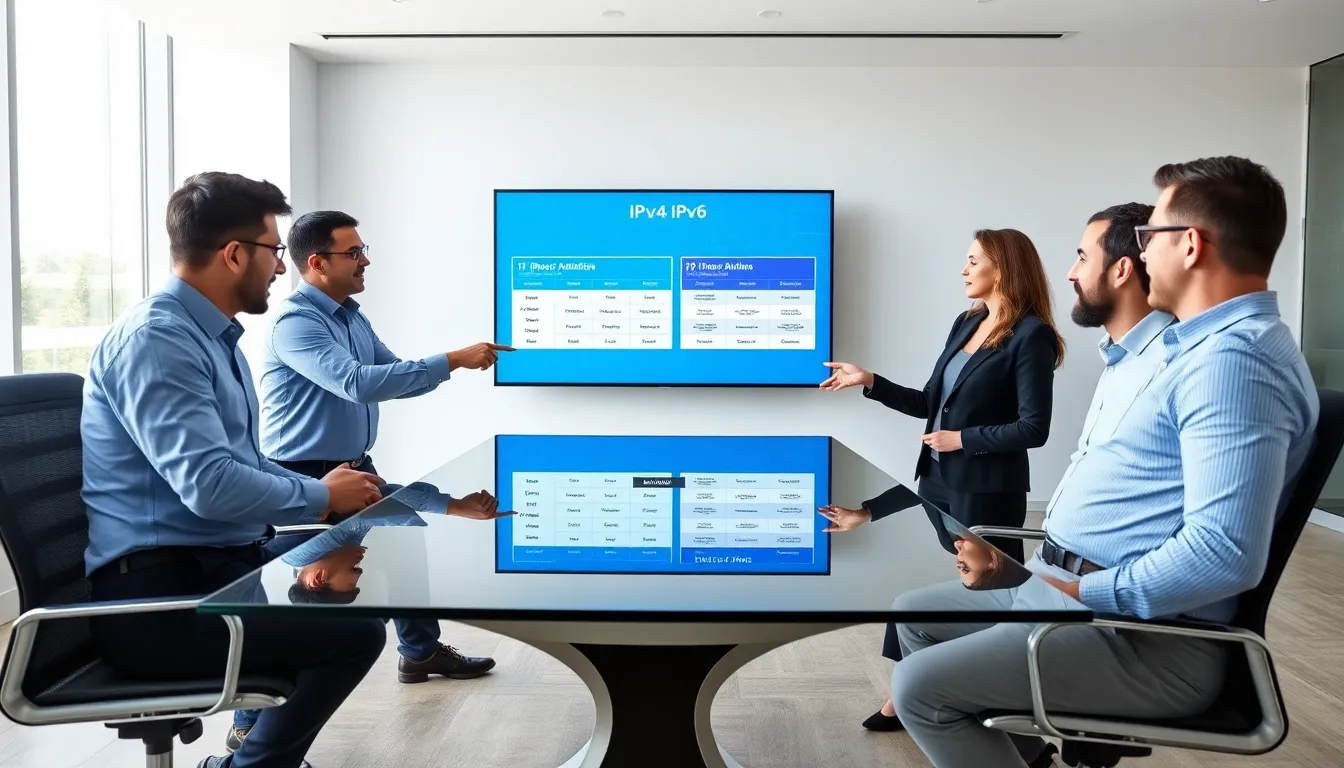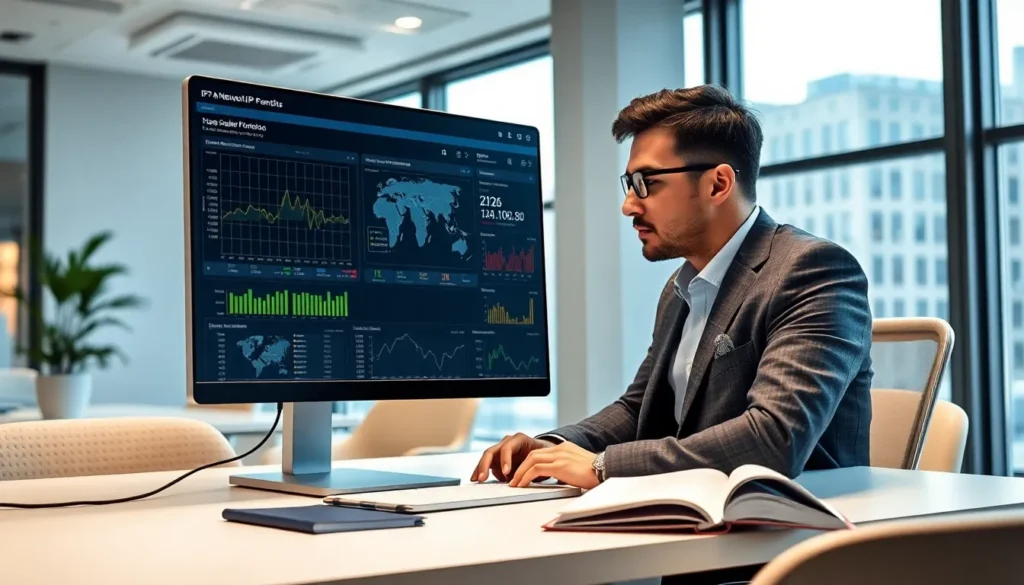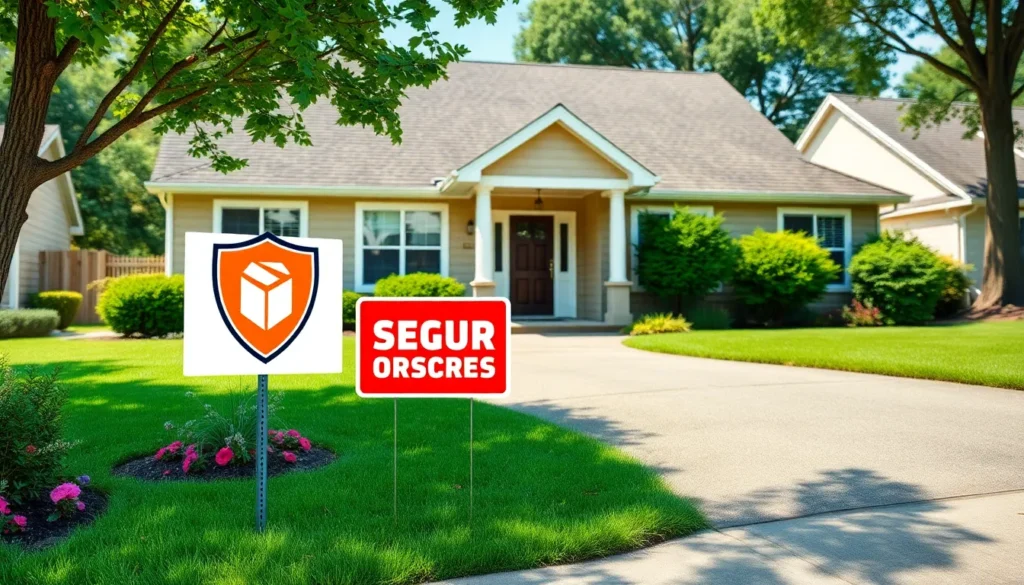Ever stumbled across an IP address and wondered what it’s all about? You’re not alone. Ever since the internet became our go-to source for cat videos and memes, IP addresses like 124.105.5.80 have been lurking in the background, quietly vital to our online experience. But what’s really going on behind that seemingly random string of numbers? Buckle up as we investigate into the intriguing realm of IP addresses, with a sprinkle of humor and a dash of insight. Prepare to become the life of the party with your newfound knowledge.
Table of Contents
ToggleWhat Is an IP Address?

An Internet Protocol (IP) address is like the street address of your home, but for devices connected to the internet. Every device needs a unique identifier to send and receive information. Without it, your online activities would be like sending a letter without an address, likely to end up in a mystery pile of lost mail.
The Structure of IP Addresses
IP addresses come in two formats: IPv4 and IPv6. IPv4, the most commonly seen, is structured as four sets of numbers separated by dots, like 192.168.1.1. Each section can range from 0 to 255, which means there’s a finite pool of addresses available, about 4.3 billion of them. With the rapid growth of the internet, that’s not nearly enough. Enter IPv6, which vastly expands the number of available addresses by using hexadecimal numbers and colons, making it look like an alien code. Talk about a tech upgrade.
Types of IP Addresses
When it comes to IP addresses, not all are created equal. They can be classified into several categories based on their usage and characteristics.
Public vs. Private IP Addresses
Public IP addresses are assigned to your network by your Internet Service Provider (ISP). Think of them as your home’s address in a neighborhood. They allow your devices to connect to the larger internet while private IP addresses function like the room numbers within your house. Used for internal communication, devices within a single network communicate via private IPs, keeping your data safe from the outside world.
Static vs. Dynamic IP Addresses
Static IP addresses are like that reliable friend who always shows up on time, you can count on them. These addresses don’t change, making them perfect for hosting websites or services that need consistent access. Dynamic IP addresses, on the other hand, are a bit more whimsical. Each time a device connects to the network, it’s assigned a different IP. This keeps things interesting but may be less reliable for certain applications.
Geolocation of 124.105.5.80
Every IP address has a geolocation, meaning it can be traced back to a geographical location. This geolocation can reveal insights such as the city, region, and even the ISP associated with the IP address.
Identifying the Owner of 124.105.5.80
So, what can be gleaned from 124.105.5.80? By doing a simple IP lookup, individuals can glean information about its origins. Often, this involves a registered organization that has been assigned the IP block. This information can be crucial for various purposes, such as knowing who to contact if something goes awry online or simply curiously checking where your internet traffic is coming from.
Common Uses and Applications
IP addresses serve a multitude of purposes in our daily online interactions. They may seem mundane but are essential for efficient internet functionality.
Security Implications of IP Addresses
Understanding IP addresses can have significant security implications. They are often used in cybersecurity to track down malicious activity or potential threats. For instance, a sudden spike in traffic from a single IP may indicate a DDoS attack. Network administrators use this information for defensive strategies, helping to keep our digital lives secure.
How to Protect Your IP Address
In a world where privacy concerns are becoming more prominent, protecting one’s IP address is essential. Tools like Virtual Private Networks (VPNs) encrypt your connection and hide your real IP address from prying eyes. Firewalls also play a role in safeguarding against unauthorized access, further enhancing security.


